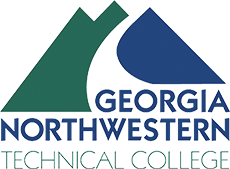Federal Grants
Grants are financial aid allowances that do not normally need to be repaid. GNTC offers both federally-funded grants and state-funded grants.
- Federal Pell Grant
- Federal Supplemental Education Opportunity Grant (FSEOG)
- Federal Work-Study (FWS)
Common General Eligibility Requirements
Although programs have their own unique requirements, there are common eligibility requirements that coincide. Below are the common requirements for federal aid programs.
- The Free Application for Federal Student Aid (FAFSA). You may also visit How to Apply for Financial Aid for additional information on applying.
- The student must be a US citizen or an eligible non-citizen
- If you are an eligible non-citizen, you must submit a copy of your permanent resident card to the Financial Aid Office. You must be a permanent resident of the United States for at least 24 months.
- The student must not owe any repayments on previous grants or scholarships
- The student must not be in default on a federal loan
- The student cannot have a Bachelor’s Degree or higher
- The student must be taking classes within his/her program of study
- The student must maintain Satisfactory Academic Progress (SAP)
- That the student must have a High School Diploma or GED®.
- The student must be enrolled in an associate’s degree, an eligible diploma, or an eligible certificate program.
- If the student is selected for verification, all financial aid documents must be turned in and verified.
Please note that all aid programs will also have general eligibility requirements that are unique to their specific aid group. Brief descriptions of the different types of federal grant aid are listed below.
Federal Pell Grant
The Federal Pell Grant is needs-based and provides assistance to low-income students seeking post-secondary education. Pell Grant amounts are determined by the student’s Estimated Family Contribution (EFC)/Student Aid Index (SAI), Cost Of Attendance (COA), the number of credit hours for which a student is enrolled for classes, and whether the student attends each semester within the academic year. If a student is enrolled in an associate’s degree, an eligible diploma, or eligible certificate programs, he/she may be eligible for the Federal Pell Grant.
Federal Supplemental Education Opportunity Grant (FSEOG)
The Federal Supplemental Educational Opportunity Grant (FSEOG) is a needs-based grant for undergraduate students with exceptional financial needs. Only students who receive both the federal Pell Grant and have the greatest financial need will receive the FSEOG first. Each participating school is allotted only a certain amount of funds each year from the U.S. Department of Education’s Office of Federal Student Aid. Therefore, this is a type of “first-come-first-served” grant. Once the allotted amount of FSEOG funds has been awarded for the aid year, no additional FSEOG awards can be administered until the next fiscal year.
Federal Work-Study (FWS)
The Federal Work-Study Program (FWS) is a needs-based federally funded program that assists students with funding educational expenses by providing employment opportunities. Both on-campus and a few off-campus positions are offered to students. Since education is our primary goal for the student, work hours are generally flexible around the student’s academic schedule. The rate of pay for federal work-study is never less than minimum wage, and Work-Study students are paid twice a month for hours worked. In addition to the Common General Eligibility Requirements, a student hoping to qualify for the Federal Work-Study Program must:
- Be Pell-eligible with high financial need
- The student must apply for a work-study position and complete all required documents for the background check.
If interested in applying for a work-study position, please view Work-Study Positions.
